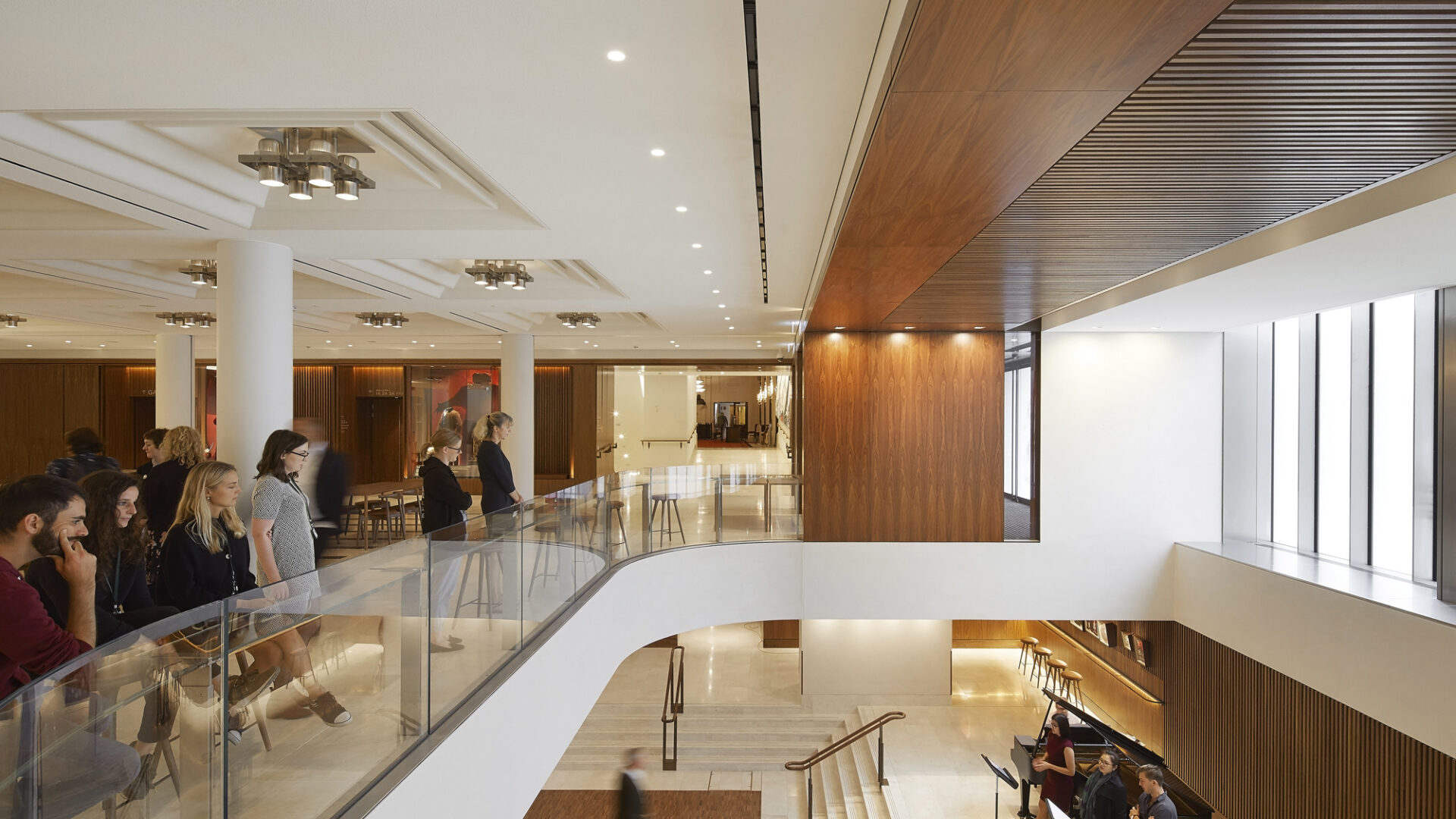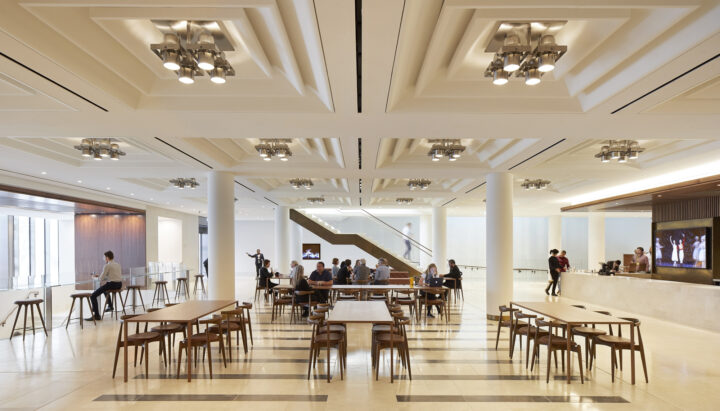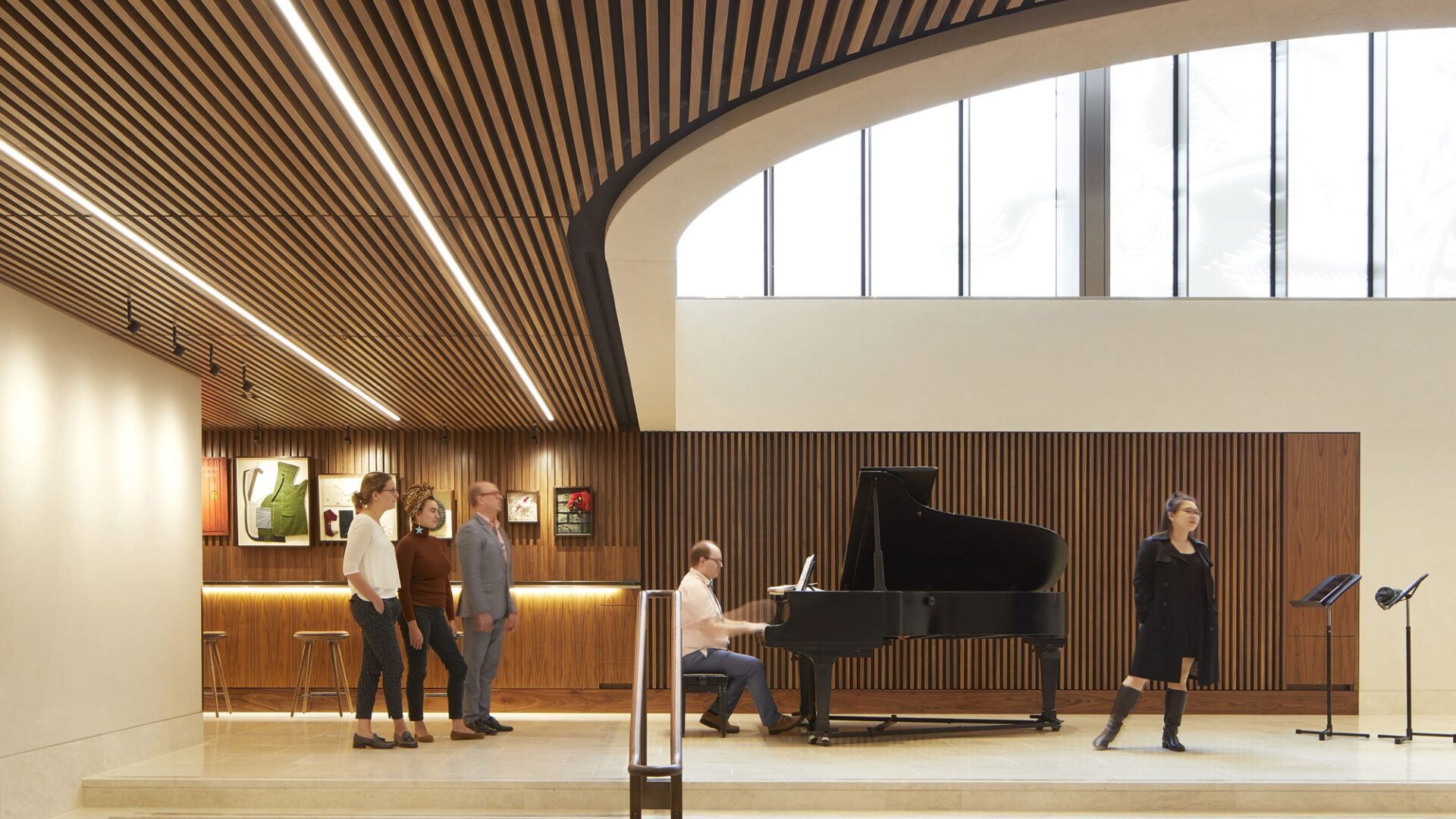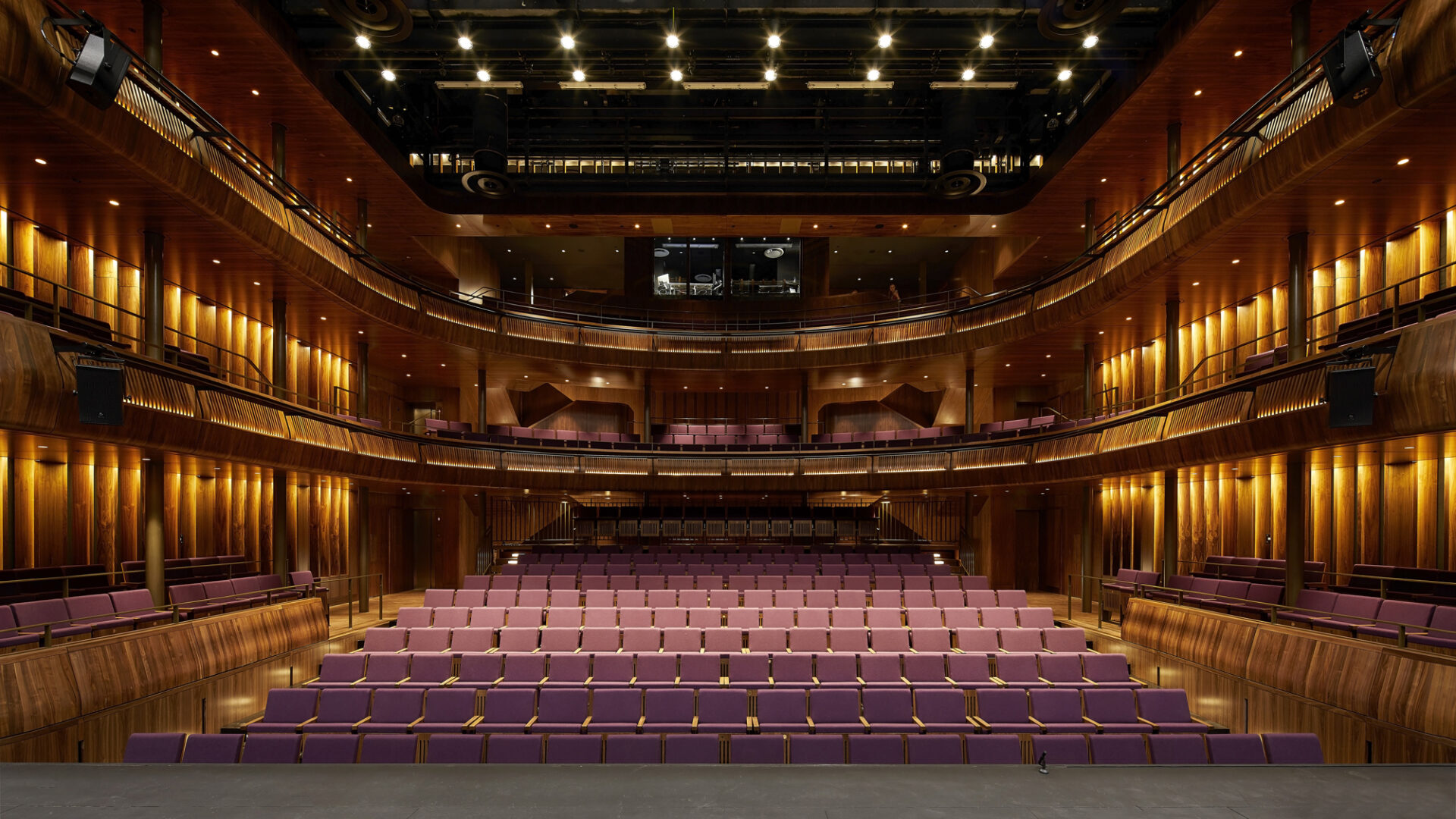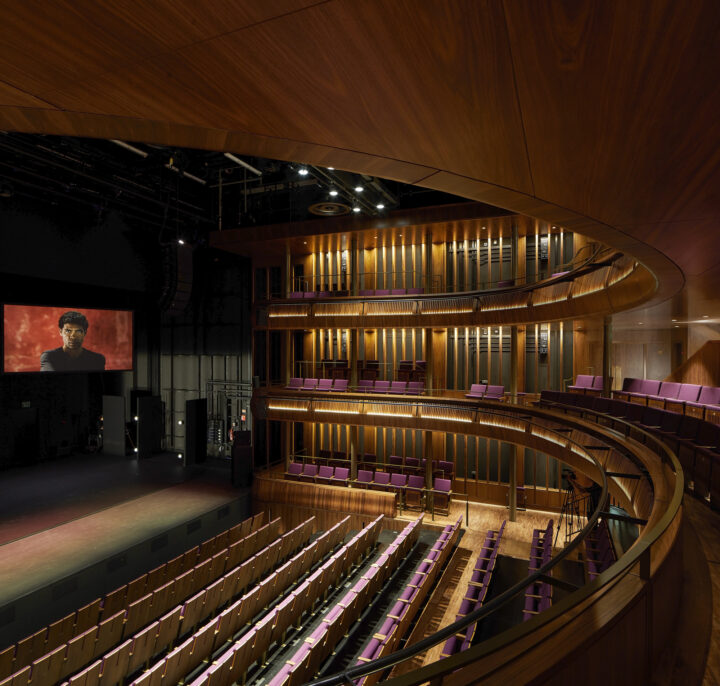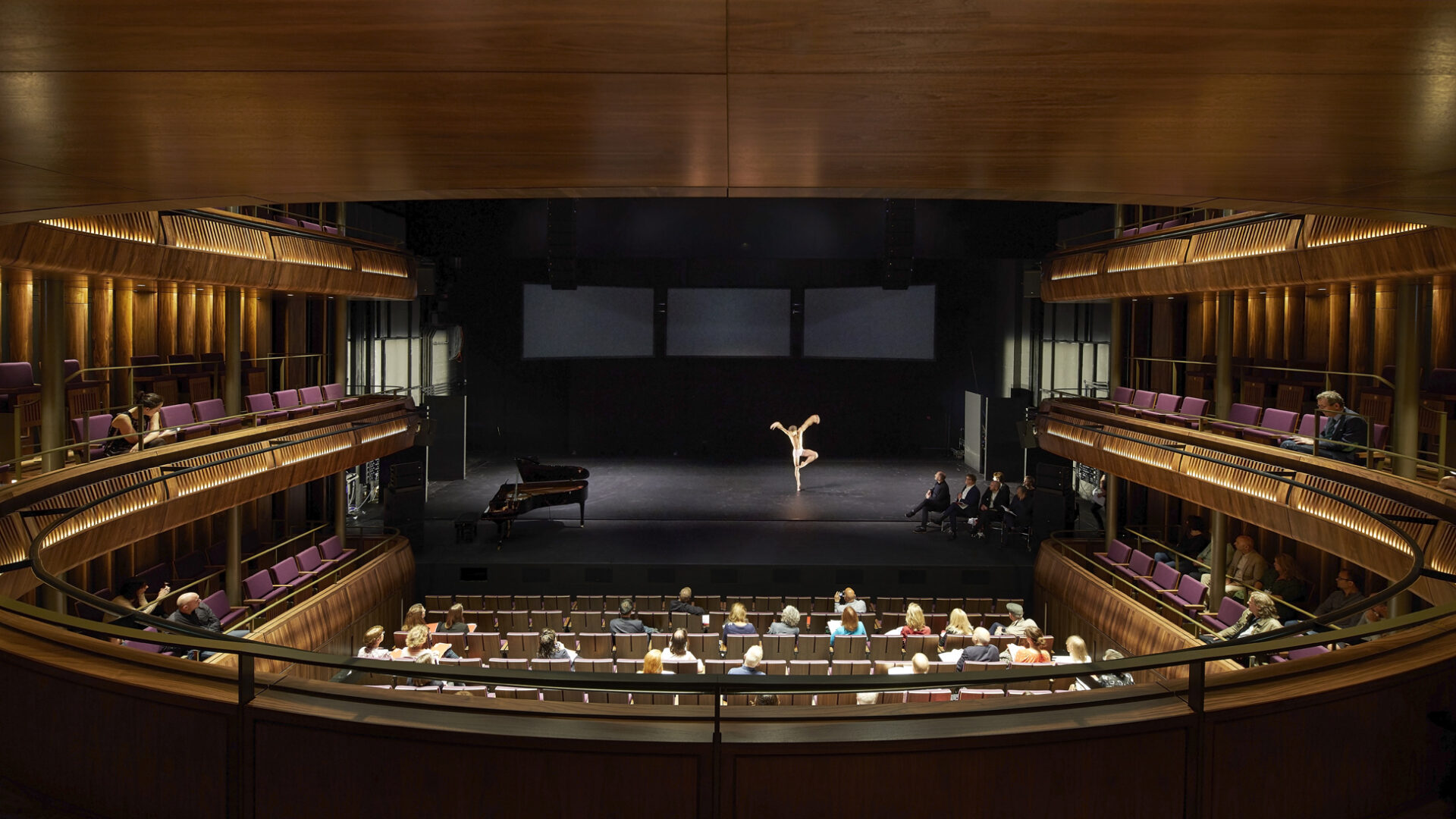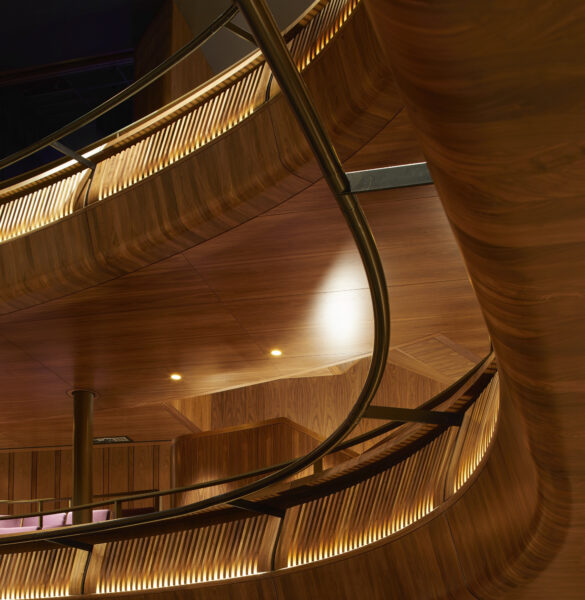The Linbury Theatre, Royal Opera House
London, UK
A radical opening up of London’s world-famous opera house welcomes in a new generation with spacious foyers, a reconfigurable theatre and expanded programming opportunities.

The new Linbury Theatre at the Royal Opera House. Image: Hufton+Crow.
In a large refurbishment project, London’s Royal Opera House has completed a progressive reimagining of their social and studio spaces. The Open Up project was envisioned as a way of both welcoming in new demographics and welcoming back existing patrons with a bold new slate of programming and facilities.
Over the past three years architects Stanton Williams has overseen the project which includes a new entrance from the Covent Garden Piazza which incorporates a floor-to-ceiling digital screen. On the other side of the building, the heritage listed Bow Street facade was sensitively remodelled to include an extension beneath the iconic glazed Paul Hamlyn Hall. Inside, the ground-floor foyer space has been increased by 19% and brightly decorated with Crema Marfil marble flooring and American Black Walnut panelling. The bar and cloakroom areas have been reimagined and the restrooms have been greatly increased and relocated opposite the lower-ground foyer. Elsewhere a new shop, cafe and informal event and exhibition spaces have been added whilst access to the Paul Hamlyn Hall has been improved via an illuminated staircase and the popular amphitheatre terrace has been remodelled.
Following the sweeping staircase down into the double-height lower-ground foyer, you’re met with an informal performance space which can be seen from the expansive, glazed Bow Street facade above. Doors across the foyer lead to the reinvented Linbury Theatre, previously a black box studio. Built within an existing concrete shell, the 400-seat capacity has been retained. Multiple, reconfigurable seat forms in rich purple upholstery, designed by Stanton Williams and Charcoalblue and built by Race Furniture, allow for added flexibility within the space.
From the original concept, the theatre was envisioned as a home to a variety of artforms and artistic ambitions. The horseshoe form embraces the audience to achieve a greater level of inclusivity and intimacy. The stalls and stage can be rearranged to allow for thrust, end-on, traverse, in-the-round and flat-floor formats.
Structurally the space has been remodelled to enable seating elevators to be installed which allows the technical team to achieve a steep and shallow rake. A variable sized orchestra pit and electro-acoustic system contribute to what is now one of the best-equipped theatres of its size in the country.
Steering the design of the auditorium, we undertook technical design for the audiovisual, stagelighting and stage engineering systems in addition to theatre planning and seating design. Beyond the theatre we advised the project team on the informal foyer performance spaces.
During the course of the three-year construction, all 996 scheduled performances by the Royal Opera House were conducted without a single cancellation.
Project Details
Client
Royal Opera House
Project cost
£50.7m
Completed
2018

The American Black Walnut detail of the Linbury Theatre. Image: Hufton+Crow.
Credits
Architect
Theatre consultant
Project manager
Cost consultant
Construction manager
Structural engineer
Acoustic engineer
Heritage consultant
Watch the first performance on the new stage here.
Royal Ballet First Artist Joseph Sissens performs an extract from Charlotte Edmonds' 'jojo'

A performer takes to the stage at the Linbury Theatre. Image: Hufton+Crow.
Team Members
Related

